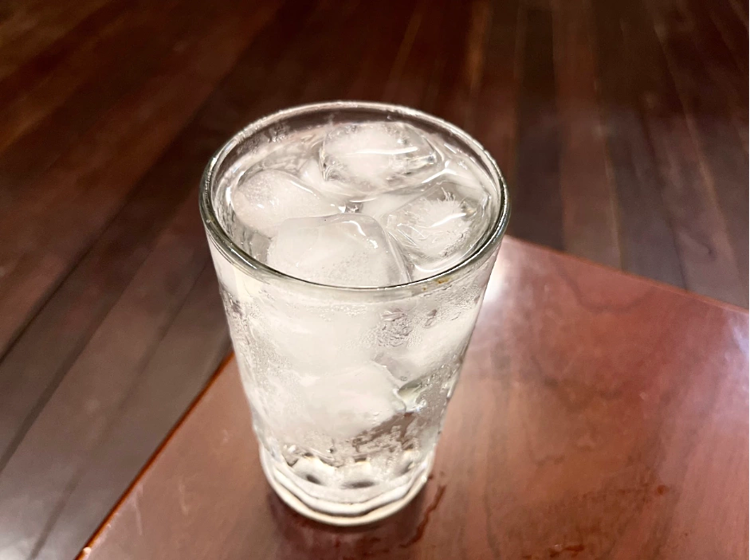Doctor Nguyen Huy Hoang from the Viet Nga Hyperbaric Oxygen Center, Ministry of Defense, explains that during hot summer days, as environmental temperatures rise, the body loses water through the skin (increased sweating) and lungs (increased breathing rate). The amount of sweat secreted to regulate body temperature is substantial, around 2-3 liters per hour, and can even reach 3-3.5 liters per hour, causing dehydration-related disorders.
Proper hydration helps cool the body, boosts immunity, and promotes overall health. It's recommended to drink 1.5 to 2 liters of water daily. Individuals with chronic conditions like cardiovascular or kidney diseases should consult their doctor about their daily water intake. However, many people don't know how to hydrate correctly and often make mistakes that can harm their health. Here are three common mistakes:
Drinking too much water in a short time
Many people drink excessive amounts of water in a short time to quench their thirst. This increases the strain on the circulatory system and kidneys, leading to frequent urination and electrolyte imbalances. Additionally, drinking too much water at once can burden the heart, which is particularly risky for those who have just exercised or done strenuous work. This also leads to continuous sweating, causing the body to lose electrolytes like potassium and sodium, further increasing thirst. It can also cause bloating and hiccups.
Drinking excessively cold water
The habit of drinking very cold water, especially iced water, is common during hot weather. Cold water can constrict blood vessels and disrupt microcirculation. Excessive consumption can cause sore throats, pneumonia, and negatively impact the respiratory system. Moreover, extremely cold water can lead to digestive problems, especially if the ice is made from unsanitary water. Also, drinking very cold water in hot weather can lower body temperature too quickly, slowing down metabolism.
Drinking too many sugary drinks
Many people substitute coconut water or sugarcane juice for plain water. This can cause electrolyte imbalances and affect muscle function. Sugarcane juice is particularly sweet, and excessive consumption can lead to weight gain. Those with sensitive digestive systems, prone to bloating or diarrhea, should not consume it regularly. People with underlying conditions like diabetes, high cholesterol, or gout should limit their intake. When thirsty, avoid sugary or alcoholic beverages, which are detrimental to health.
Furthermore, the increased consumption of sugary and carbonated drinks during hot weather can exacerbate metabolic disorders and increase the risk of obesity and diabetes.
 |
Cold water can cause sore throats and affect metabolism. Illustration: Ly Nguyen. |
Doctor Huynh Tan Vu from the Department of Traditional Medicine, University of Medicine and Pharmacy, TP HCM, states that water intake depends on weather, living conditions, work intensity, and physiological factors. Specific recommendations exist for different age groups.
For adolescents (10-18 years old), the water requirement is 40ml/kg; for those aged 19-30 engaging in strenuous physical activity, it's also 40ml/kg; from 30 to 55 years old with high physical activity, it's 35ml/kg; and for people over 55, it's 30ml/kg.
For children weighing 1-10 kg, the water requirement is 100 ml/kg; for children weighing 11-20 kg, the minimum water requirement is 1,000 ml; and for children 21 kg and above, the minimum is 1,500 ml. Water can be supplemented through drinks and food.
Dehydration occurs when the body loses more fluids than it takes in, disrupting the balance of salts, minerals, and blood sugar levels, hindering normal bodily functions. Severe dehydration can lead to dangerous complications including cerebral edema, seizures, shock, acute kidney failure, coma, and even death. Signs of dehydration include thirst, dizziness, lightheadedness, heart palpitations, infrequent urination, dry mouth, dark yellow and concentrated urine, muscle weakness, and dry skin.
Conversely, excessive water intake can lead to overhydration, which is just as dangerous as dehydration. Symptoms include nausea, vomiting, feelings of fullness and bloating, headaches, muscle weakness, cramps or aches, seizures, and loss of consciousness.
For optimal health, the simplest approach is to drink boiled and cooled water. If choosing bottled water, select reputable brands. For those who find plain water unappealing, add slices of lemon, strawberries, cucumber, or mint leaves to enhance the flavor.
Thuy Quynh












